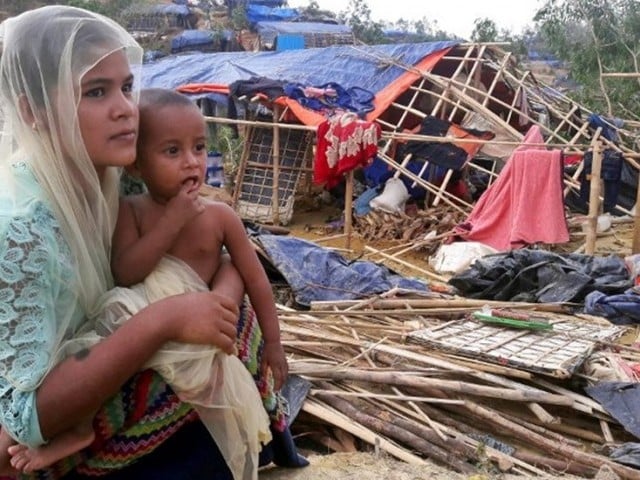
Maung Kyaw Zan, a national member of parliament for Buthidaung township in northern Rakhine state, said shells fired from a nearby battalion hit Kin Taung village in the middle of the night.
Myanmar's Suu Kyi denies 'genocidal intent' in Rohingya case
Government troops have been battling ethnic rebels in the state for more than a year.
“There was no fighting, they just shot artillery to a village without a battle,” he told Reuters by phone, adding it was the second time this year that civilians had been killed.
More than 730,000 Rohingya Muslims were forced to flee northern Rakhine state in 2017 after a military crackdown that the UN has said was executed with genocidal intent.
More recently, the region was plunged into further chaos by fresh fighting between the military and the Arakan Army, a rebel group that recruits from the mostly Buddhist majority in the state.
That conflict has displaced tens of thousands and killed dozens.
Of the several hundred thousand Rohingya still in Rakhine, many are confined to apartheid-like conditions, unable to travel freely or access healthcare and education.
They are caught in the middle of the fighting, and travel restrictions mean they are less able to flee than Buddhist neighbours.
In early January, four Rohingya children died in a blast the military and rebels blamed on each other.
Two military spokesmen did not answer phone calls from Reuters seeking comment on Saturday’s deaths.
Soe Tun Oo, a Rohingya villager living a mile from the village, told Reuters by phone two houses were destroyed in the explosion.
“The military always shoots heavy weapons… They shoot heavy weapons around the area they suspect. It is impossible to flee to other places, even though we are scared.”
The Hague-based International Court of Justice ordered Myanmar on Thursday to protect the Rohingya against further atrocities and preserve evidence of alleged crimes, after West African nation the Gambia launched a lawsuit in November accusing the country of genocide.
Myanmar army chief must be prosecuted for Rohingya genocide': UN rights envoy
A spokesman for the ruling party told Reuters the country was already protecting Rohingya, but the civilian government had limited power over the military.
Civilian authorities govern jointly with the military in an awkward constitutional arrangement that reserves great powers for the commander-in-chief.





1732354127-0/Untitled-design-(3)1732354127-0-270x192.webp)


1732344836-0/BeFunk_§_]__-(37)1732344836-0.jpg)








COMMENTS
Comments are moderated and generally will be posted if they are on-topic and not abusive.
For more information, please see our Comments FAQ